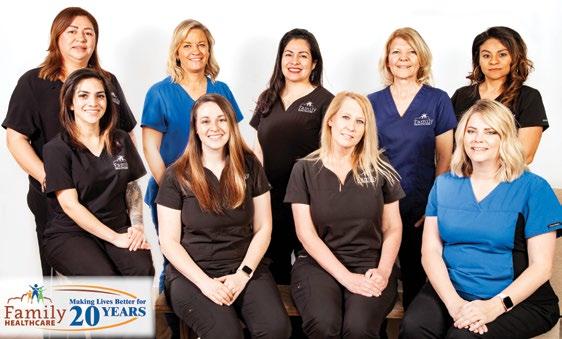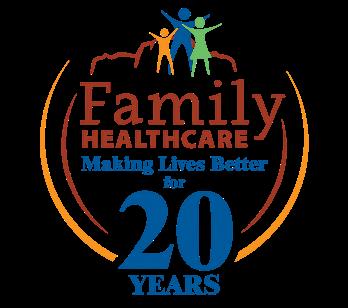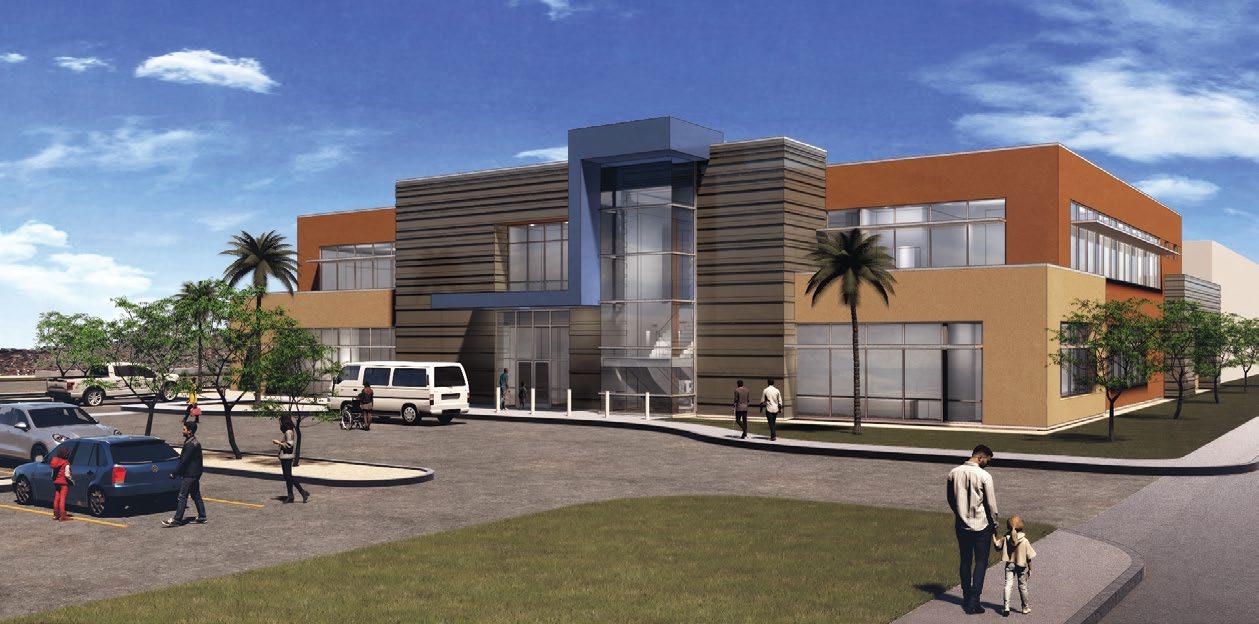
5 minute read
The Restorative Power of Advocacy in Community Health Care
By Lori Wright, CEO, Family Healthcare
Stemming from the Latin word advocatus, an advocate is one who comes to the aid of another. Orphanages and programs to feed the hungry or shelter the unhoused are the earliest examples of advocacy programs. But even before this, Homo sapiens existed in large groups and helped each other.
Advertisement
Patient advocacy work at Family Healthcare is as simple as assisting with a Medicaid application or as complex as helping to arrange access to specialized treatment or surgery at a cost the patient can afford.
There are thousands of Washington and Iron County residents who, for a variety of reasons, face difficulties in managing their health care journey. It could be due to the complexity of a medical concern, the difficulty accessing care and affordable medications, or the inability to know the next best steps. This is where the case management team at Family Healthcare comes in. Managed by Registered Nurse Amber Rees, this skilled team of nurses and care coordinators visits with hundreds of patients each year by phone or in person. Patients served by this team share one thing in common: they need the help of an advocate to achieve their health care goals.
On a typical day, five RNs participate in visits with patients who reside throughout southwestern Utah. The goal is always to make lives better by helping the patient to develop and implement a successful health care plan. This might include education about chronic disease management or continuing care after a patient’s release from the hospital, a time of heightened weakness and confusion for the patient. Once a plan has been developed, a care coordinator will jump in to help with logistical needs, working to help bring the health care plan to life.
Throughout this process, a checklist of factors weighs heavily in each situation. For example, the team must assess whether the patient is in a safe and supportive home environment, has access to transportation, requires translation services, or needs education about a chronic illness. Most importantly, they must determine whether the patient requires mental health and/or cost-of-care offset support for their health care journey.
A system of “flags” within the health care system helps case managers to know when a Family Healthcare patient is hospitalized, allowing for follow-up once the patient is released. Other times, patients are referred to Family Healthcare by partner service providers who identify the patient as needing an accessible health care home.
The members of the case management team at Family Healthcare are frequently called angels for their behind-the-scenes work to compassionately advocate for patients who often face extremely difficult circumstances. They hear tragic and painful stories every day, which motivates them to do all they can to bring hope and restored health to these patients.
“We are the bridge between a complex, often overwhelming health care system and patients who face great personal difficulties and need an advocate to provide support and information that will help them navigate their way to restored and sustained health,” explained Nursing Manager Amber Rees. “Some days, it’s emotionally very hard work, but the reward that comes from knowing we are making lives better is so encouraging.”

Family Healthcare Case Management Team
Back row left to right: Adriana Ceja-Gonzalez, Care Coordinator; Laura Christensen, RN; Anel Robledo, Care Coordinator; Kaye Shaver, RN; Yulma Suastegui, Care Coordinator. Front row left to right: Kathy Duarte, Care Coordinator; Makayla Linford, RN; Sharla Miller, RN; Amber Rees, RN.

Growing Healthy and Strong Together
We urgently need community support for the new Family Healthcare Riverside Drive Clinic
There are many ways to give:
• Give online at familyhc.org/donate.
• Scan the QR code.

• Call Jane in the Family Healthcare development department at 435-251-0866.
Donations of any amount will be put to good use for the health of our community. A $50 donation includes an inscribed brick on the pathway to health at the new clinic, while sponsorship of a treatment room includes a donor recognition plaque.
Donations are tax-deductible under section 501 (c)(3) of the IRS code. Tax ID #35-2163112
Your gift is a sacred trust. We promise to honor your generosity and use your donation in the most effective ways possible.
Southwest Utah Community Health Center, doing business as Family Healthcare, is a registered nonprofit organization. Information concerning Family Healthcare, including financial information and charitable purposes, may be obtained without costs from Family Healthcare, 25 N. 100 E., Ste 102, St. George, Utah, 84770. Family Healthcare is committed to donor privacy and does not rent or sell our mailing lists.

About the Author
Lori Wright is the CEO of Family Healthcare. With more than twenty-five years of experience in community health, she is passionate about developing equity, where everyone is able to access high quality integrated primary health care. Family Healthcare’s mission is Making Lives Better, and as CEO, Lori’s efforts are focused on improving the overall health of patients and the communities that Family Healthcare serves.
Lori serves on a variety of committees across the state and throughout Washington and Iron Counties, including the St. George Area Chamber Board of Governors, Dixie Tech Pharmacy Tech Advisory Committee, and Association of Community Health Center’s Board. She also serves as co-chair of the AUCH Health Center Control Network. She is a Certified Medical Practice Executive by the American College of Medical Practice Executives and has received a BS in Community/Public Health and a Master of Public Administration from the Marriott School of Management










